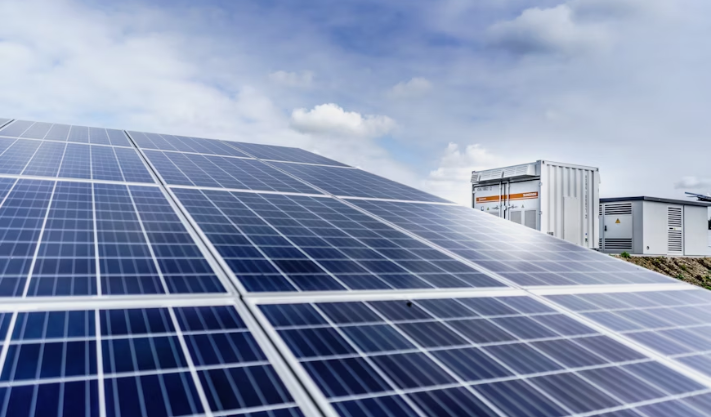Solar Power for Business: Cost, ROI, and Benefits
As energy prices rise and sustainability becomes a business imperative, more companies are turning to solar power as a smart investment. Solar energy isn’t just a green choice—it can also deliver strong financial returns, long-term cost savings, and a competitive edge. Whether you run a small business or a large industrial operation, understanding the cost, ROI, and benefits of solar power is essential for making an informed decision.
The Cost of Solar Power for Businesses
The upfront cost of installing a commercial solar power system depends on factors like:
-
System size (typically measured in kilowatts or megawatts)
-
Energy needs
-
Location and roof space
-
Type of panels and inverters used
-
Installation and permitting fees
As of 2025, the average cost of a commercial solar system in the UK or US is approximately £800–£1,200 per kW installed, with large-scale systems benefiting from economies of scale. A mid-sized business might spend £20,000–£50,000 on a system that meets a significant portion of its electricity needs.
However, generous government incentives, such as tax credits, grants, and accelerated depreciation schemes, can reduce initial costs significantly. Many businesses also explore solar financing options, including power purchase agreements (PPAs), leases, and loans, which allow for installation with little to no upfront capital.
Return on Investment (ROI)
One of the most compelling reasons for investing in solar is the long-term ROI. The typical commercial solar system pays for itself in 4 to 7 years, depending on location, energy usage, and available incentives.
Here’s how the ROI is calculated:
-
Energy savings: Businesses can reduce or eliminate their electricity bills by generating their own power.
-
Tax incentives: In many countries, businesses can deduct a significant portion of installation costs through tax credits or depreciation.
-
Increased property value: Solar installations can enhance the value of commercial property.
-
Protection from future energy price increases: Solar provides a predictable energy cost over decades.
After the break-even point, most systems continue to generate free electricity for 20+ years, translating into thousands—or even hundreds of thousands—of pounds or dollars in savings over time.
Key Benefits Beyond Financial ROI
1. Environmental Impact
Switching to solar significantly reduces a company’s carbon footprint. This supports global sustainability goals and demonstrates environmental responsibility to stakeholders, investors, and customers.
2. Brand Reputation and Customer Loyalty
Consumers and clients increasingly support eco-conscious businesses. Investing in solar can boost your brand image and attract like-minded customers and partners.
3. Energy Independence
Solar power provides a degree of protection from grid outages, rising utility prices, and energy market volatility—especially when combined with battery storage solutions.
4. Regulatory Compliance
Governments are tightening regulations on emissions and sustainability reporting. Solar energy can help your business stay ahead of compliance requirements and meet ESG (Environmental, Social, Governance) targets.
Final Thoughts
Solar power is no longer just an environmental choice—it’s a strategic business decision. With falling installation costs, rising electricity prices, and attractive financial incentives, solar offers a compelling ROI and long-term benefits for businesses of all sizes.
By investing in solar today, your business can reduce costs, enhance resilience, and lead the way toward a sustainable future.
Also Read:
5 Skills Every Leader Needs To Be AI-Proof In 2025
Understanding Inflation and Its Effect on Your Business
Howard Schultz: Visionary Leader Behind Starbucks’ Global Rise
